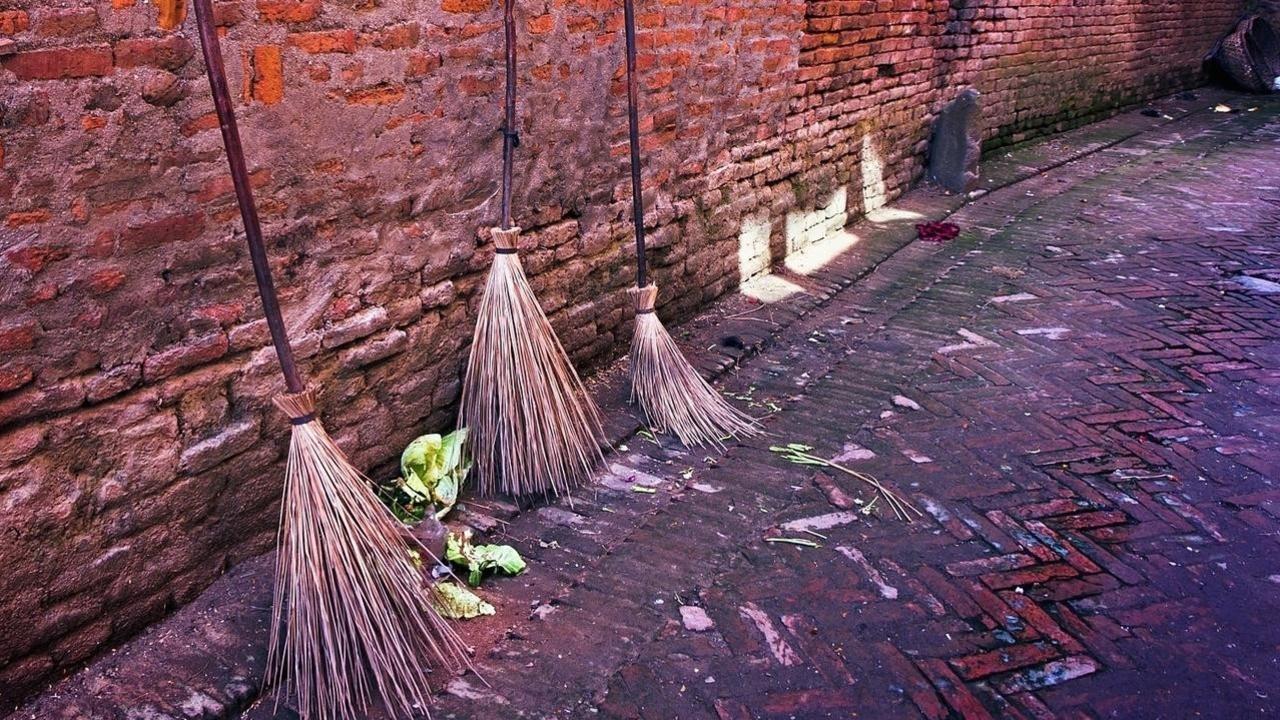On Nure Ochiba 濡れ落ち葉
Aug 10, 2016
I got off the train from Kashiwa and rode one of the clunker bicycles back to the Dojo. Actually, they’re not really clunkers, in fact they’re respected machines that provide transportation to students who visit the Dojo from all over the world. We actually like them alot. They are old-lady bikes, pretty rusted up with baskets and squeeky brakes.
As I rolled into the parking lot of the Honbu Dojo, I saw Sensei outside sweeping the lot with take-bouki, a bamboo broom. Chad was helping him with another broom and was excited about how well it worked. He made some comments about how this type of broom could not be found at Home Depot.
Sensei explained that he was sweeping the parking lot because we’d be training outdoors and he wished it to be clean for keiko. He didn’t want me to help as he was enjoying the work. Possibly because there was no other brooms to be had.
The ground was wet with leaves. Sensei took a moment to explain an interesting cultural lesson that, according to him, is uniquely Japanese called “Nure Ochiba.”
Standing holding the broom in one hand, Sensei pointed to the ground and looked at me saying,
 “Nure Ochiba means wet leaves, it is like an older man in Japan. They become a wet leaf once they stop working. Their wife tries to sweep them out of the house to do something. They do not want to leave.”
“Nure Ochiba means wet leaves, it is like an older man in Japan. They become a wet leaf once they stop working. Their wife tries to sweep them out of the house to do something. They do not want to leave.”
Sensei then bushed a wet leaf on the ground and of course it didn’t move.
It stuck to the wet ground no matter how many times he swept.
He went on to explain how important it is to grow old and keep starting new things. To get out of the house and find activity, to fill your life with new excitement, not just sit around.
Women apparently get aggravated with this type of laziness and it ends in divorce according to Sensei.
Many men get divorced and their wife leave them Sensei explained, the men live a life only to be a wet leaf.
“I am always busy, doing new things to enjoy my life. This makes my wife very happy. I am like a leaf in the wind, not stuck to the ground.”
More articles like this:
Reflections on Giri, our obligational duty as written by Inazo Nitobe



